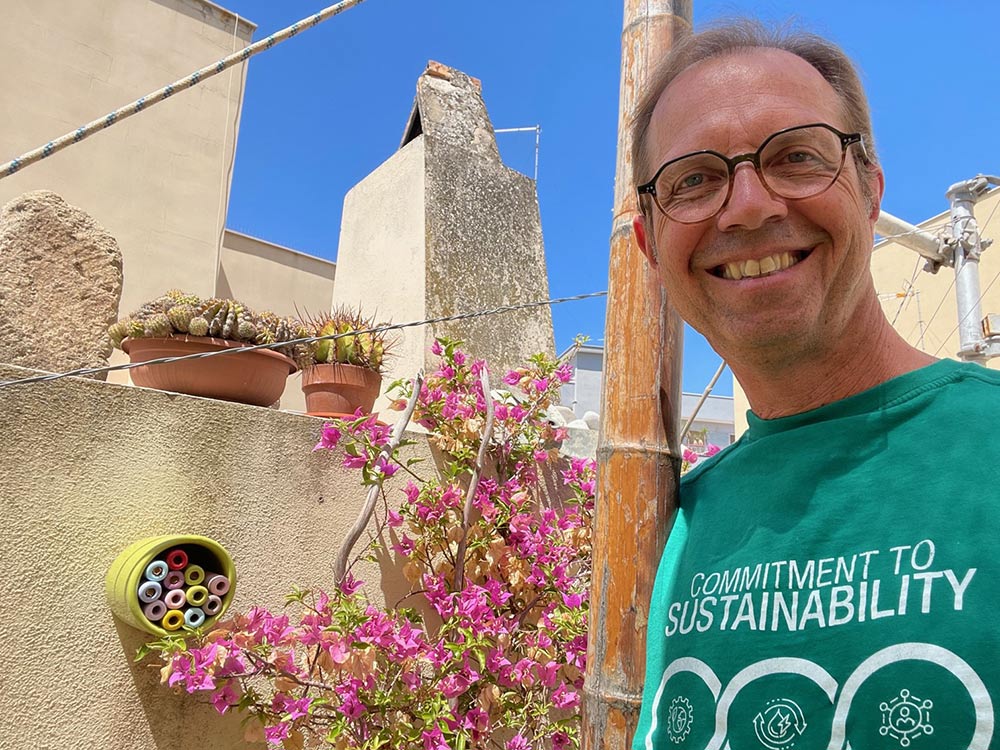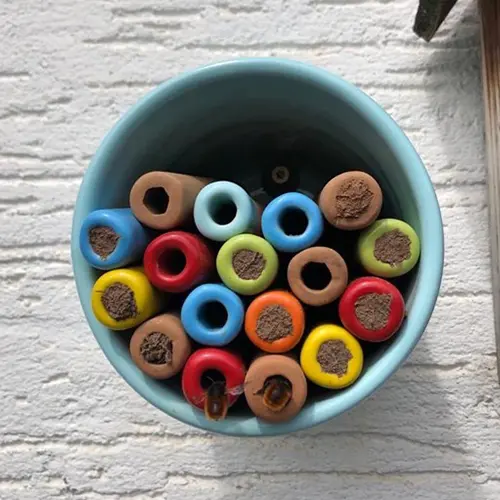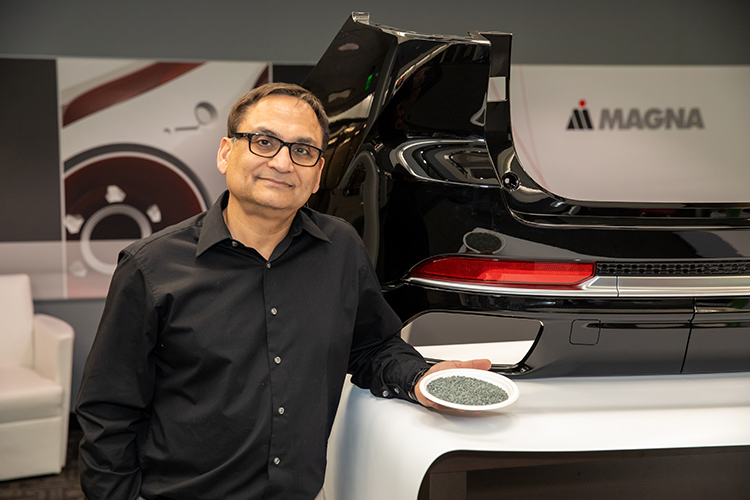He turned to an artisan potter in Terlizzi, Italy, to produce the prototypes, using the tools of such ordinary kitchen items as the hollow handles of pots. The “handles”, which are then positioned in a cup, become pipes where the bees can establish breeding chambers. The tips of the pipes feature a dash of color, giving the piece a custom look.
Hoffmann is careful to note this is not a commercial venture. So far, his bee hotels are located only on the terraced garden of his home in Giovinazzo, Italy, and at his parents’ house. His story is about the “little steps” everyone can take to protect the over 25,000 known bee species in the world – essentially one bee at a time.
“The Magna Core Value ‘Take Responsibility’ fits in well with what I do and what people need to do when it comes to protecting pollinators,” Hoffmann said. “If everyone contributed a little, we would accomplish more.”






